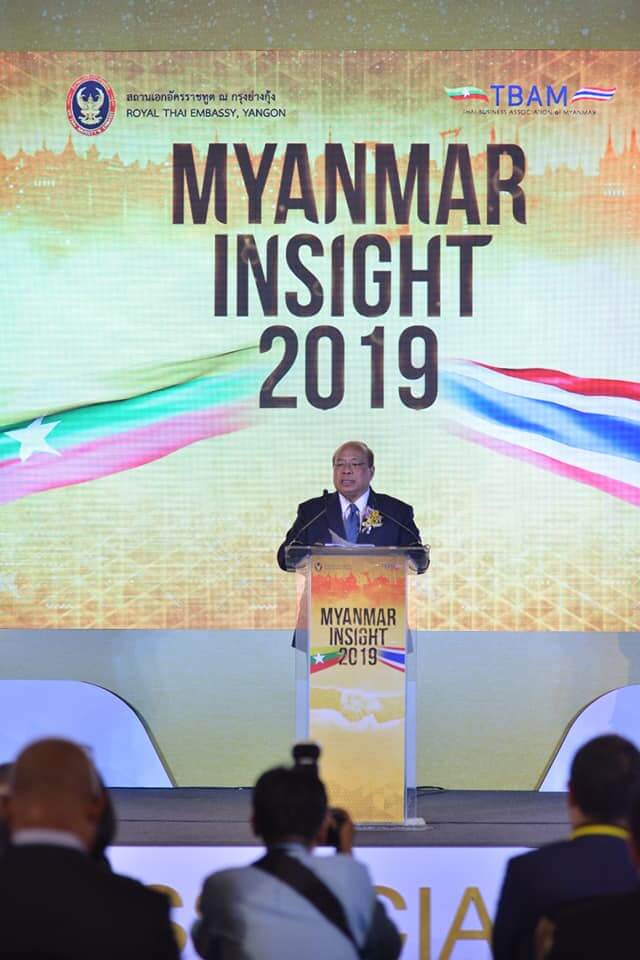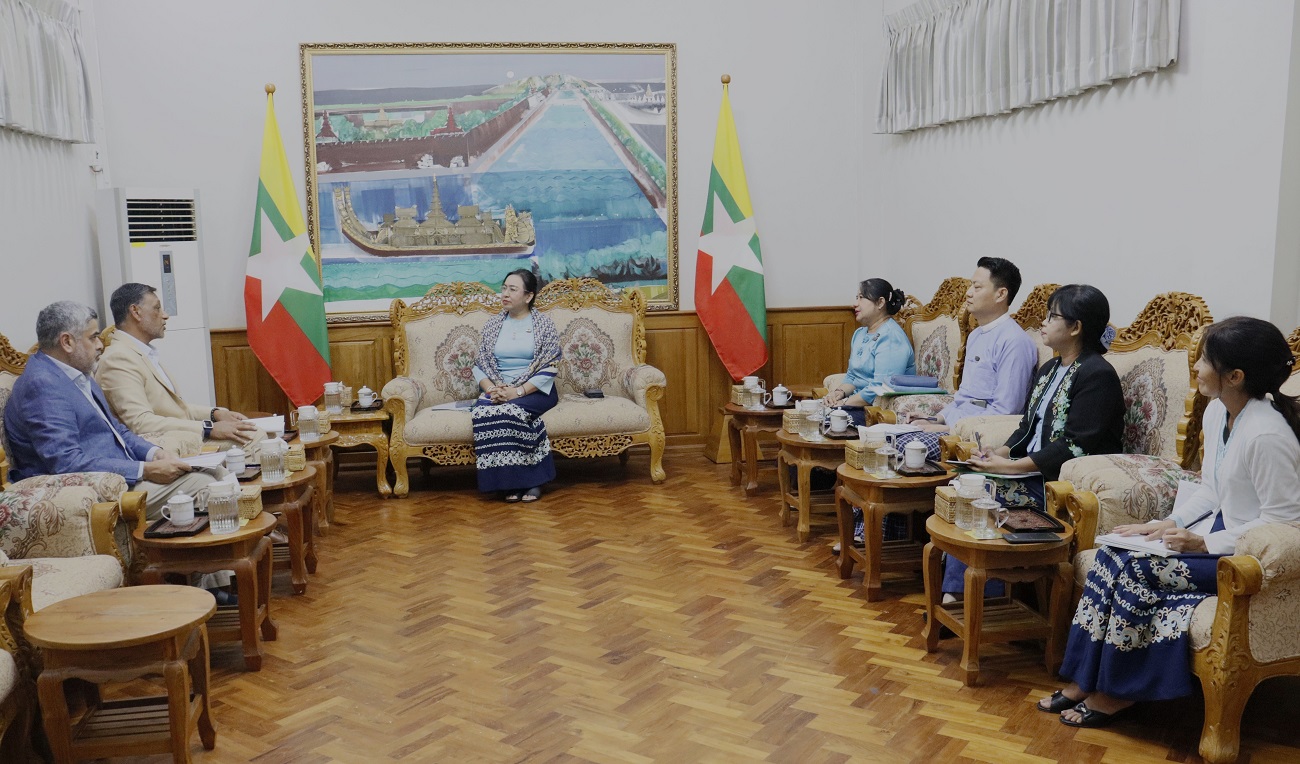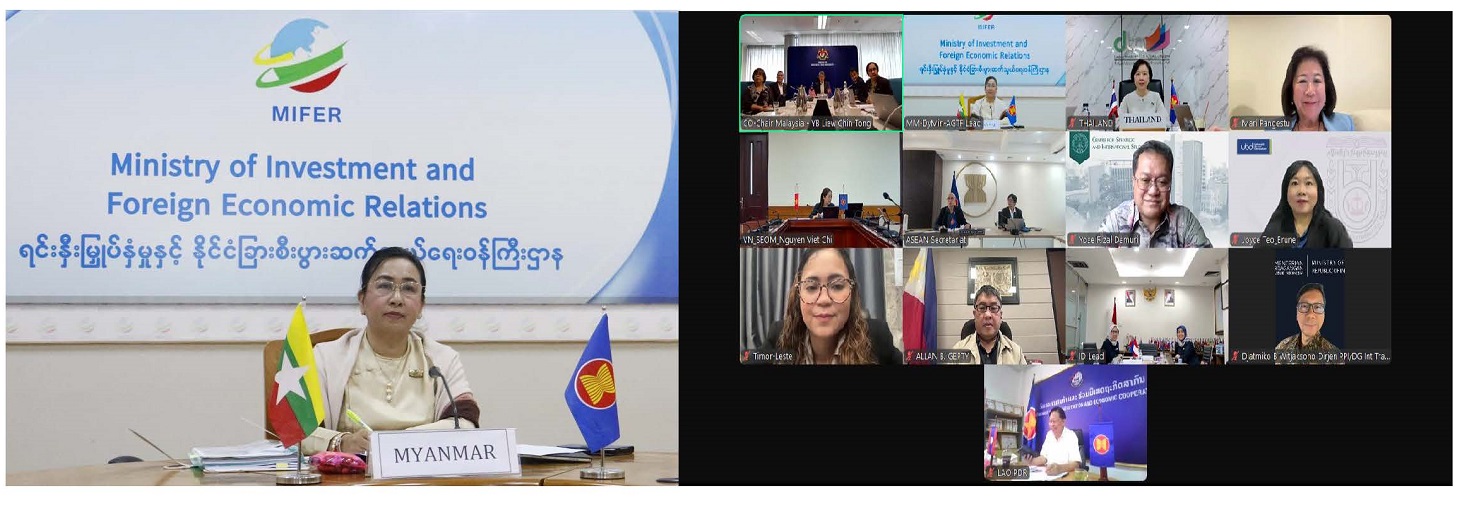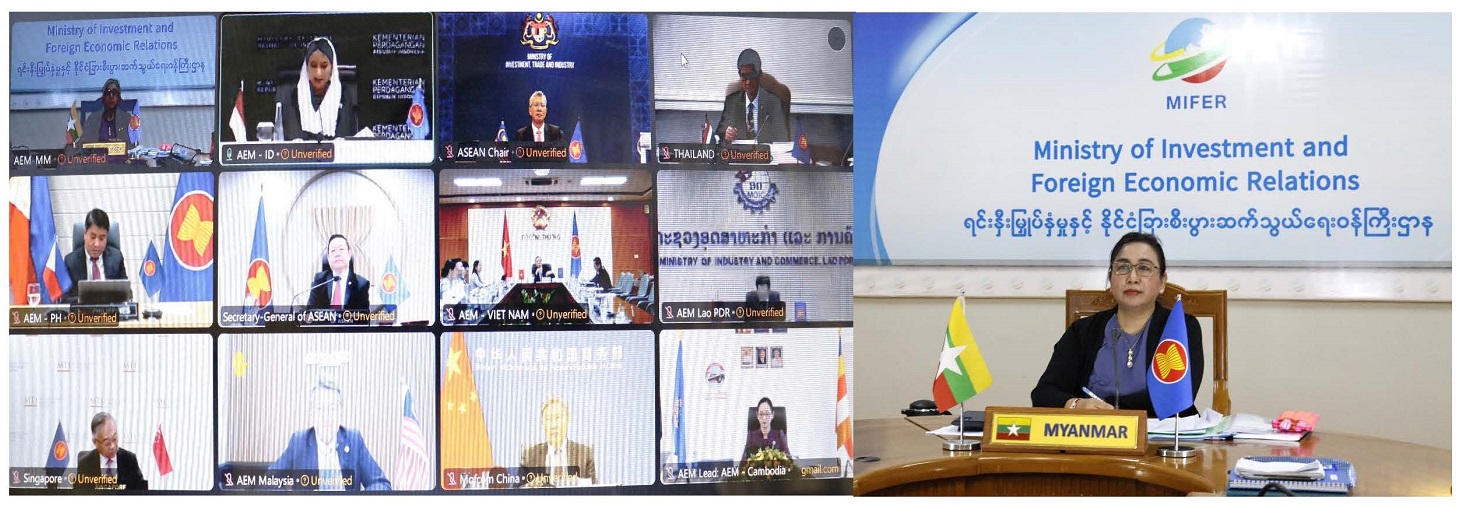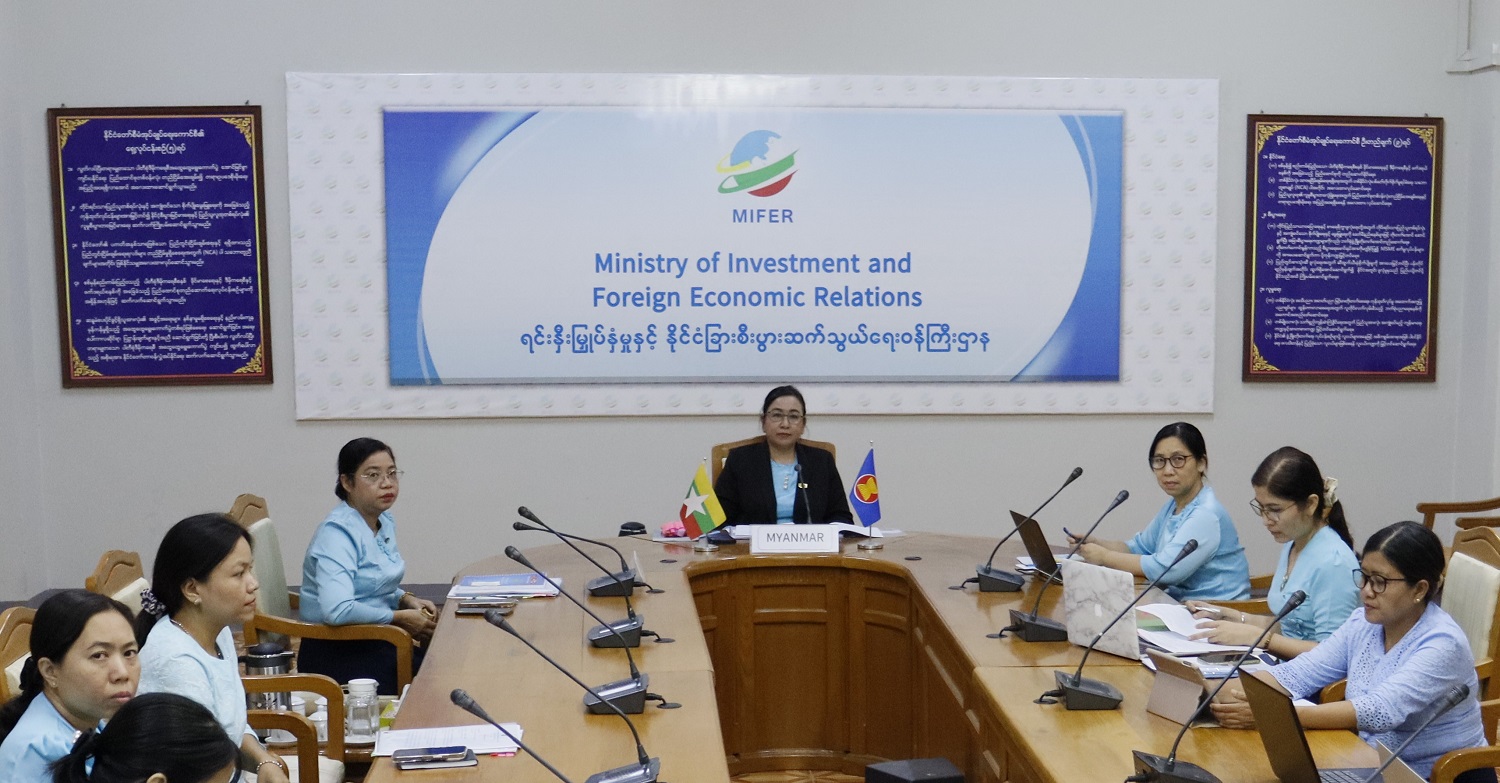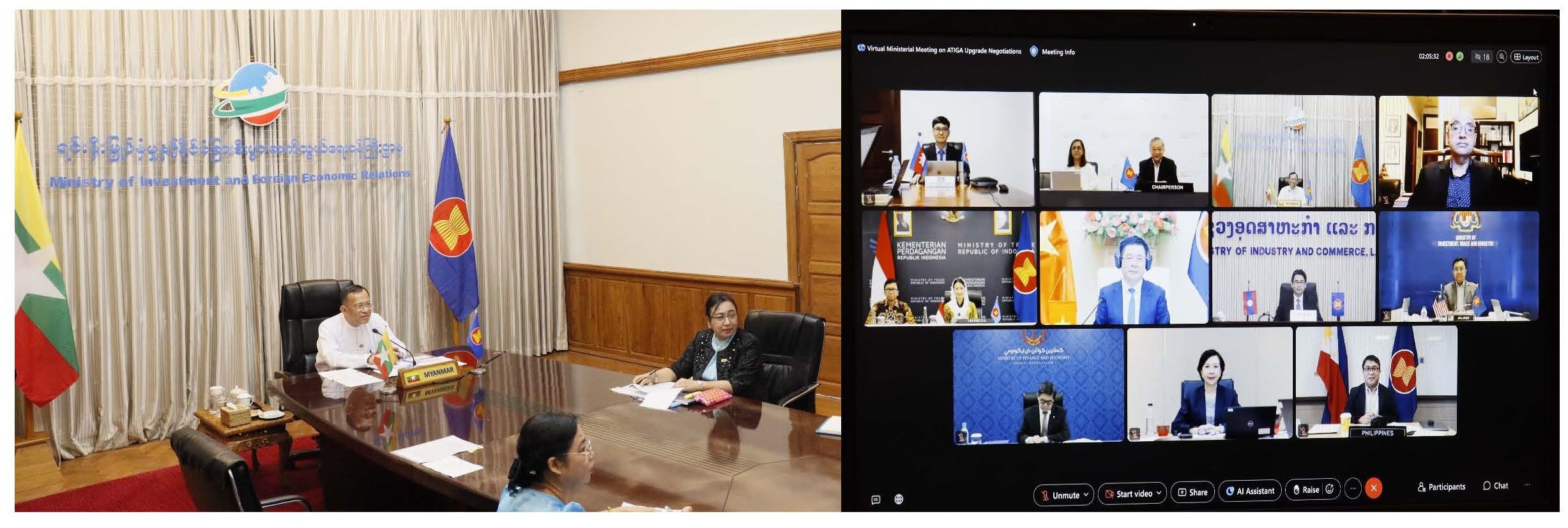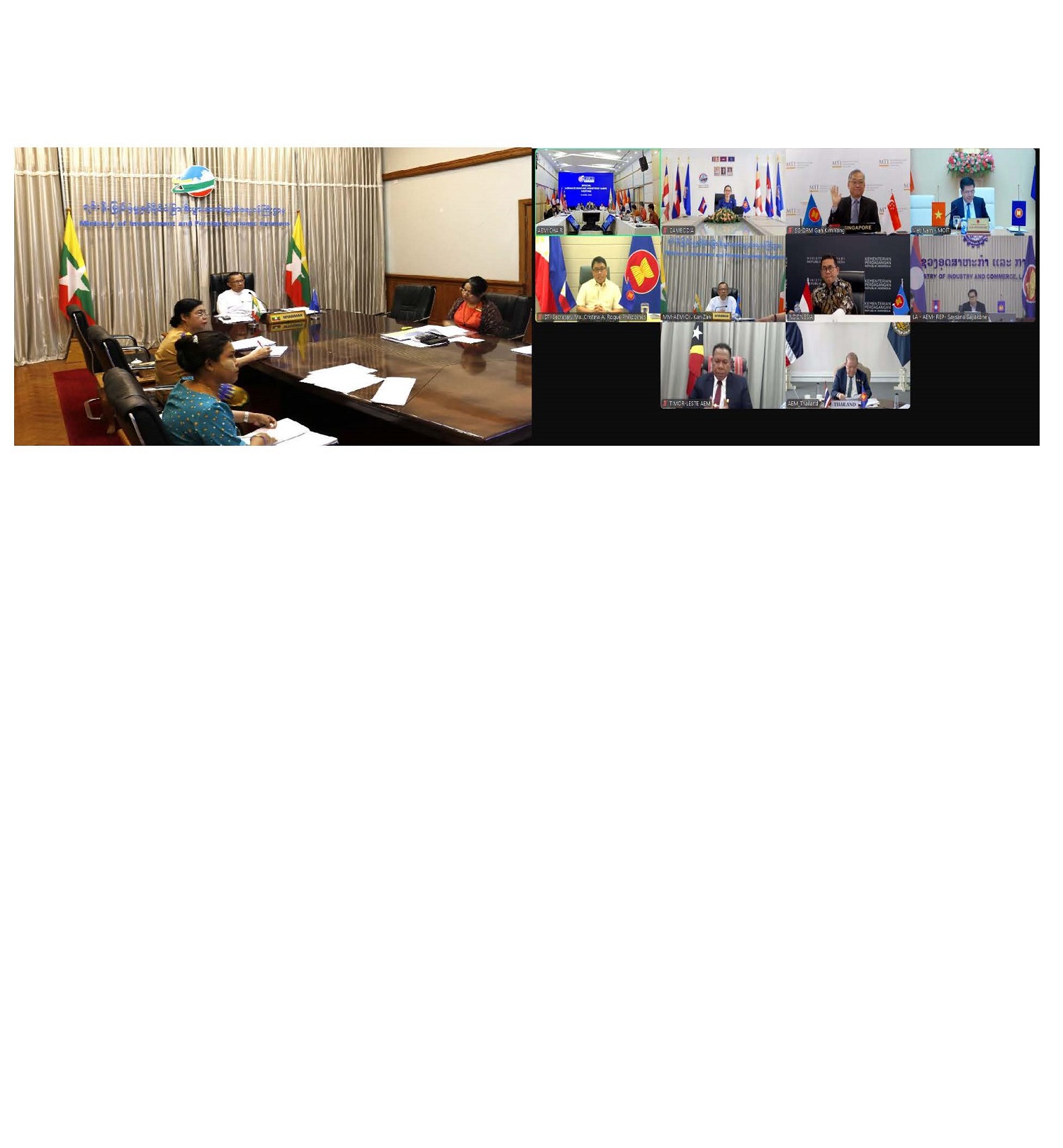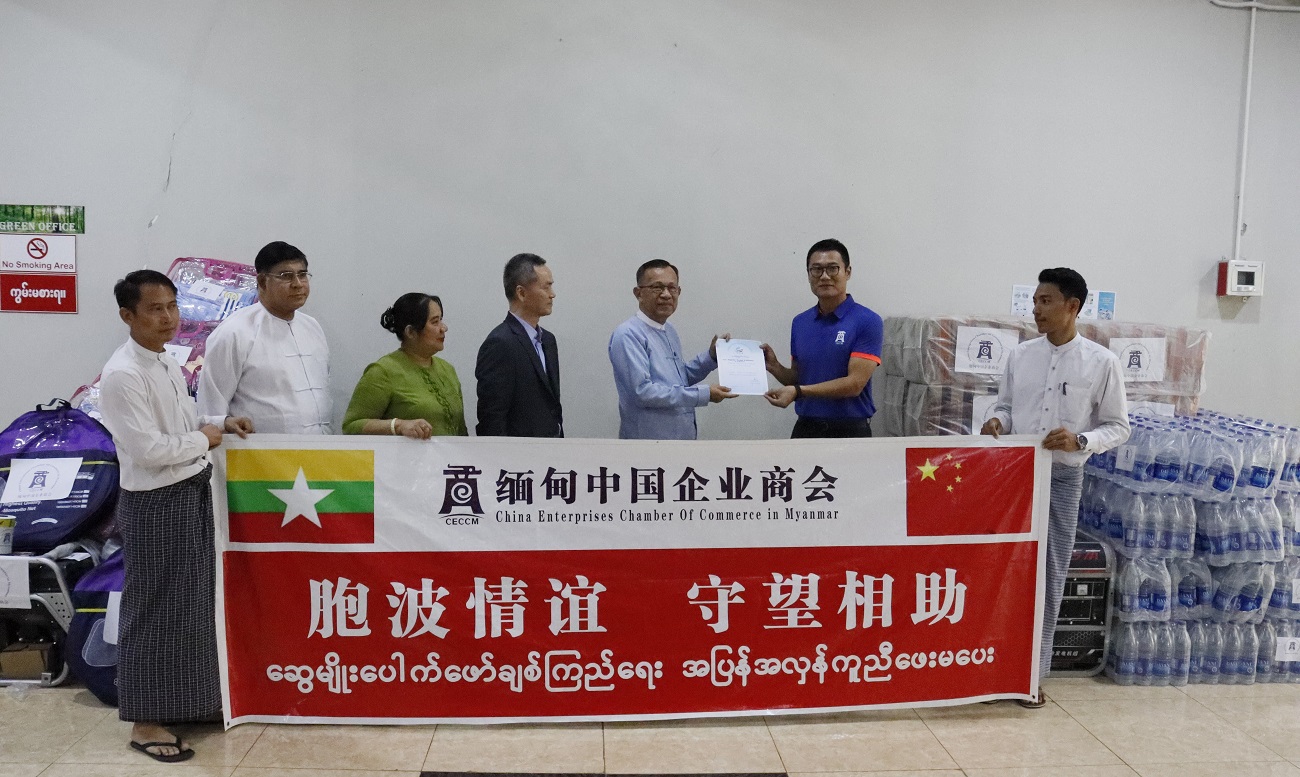Your Excellency Don Pramudwinai, Minister of Foreign Affairs of the Kingdom of Thailand,
Your Excellency Suphatra Srimaitreephithak, Ambassador of the Kingdom of Thailand to Myanmar,
Your Excellency Dr. Supachai Panitchpakdi,
Excellencies, Distinguished Guests, Ladies and Gentlemen,
Sawadee Krap! A very good morning to you all!
It gives me great pleasure to deliver this Keynote Speech on the occasion of the Myanmar Insight Seminar 2019.
It is indeed a pleasure to be back in this great beautiful city – Krung Thep – the City of Angels!
My sincere appreciation to His Excellency Don Pramudwinai for once again inviting me to attend this special event.
I wish also to thank the Royal Thai Embassy and the Thai-Business Association of Myanmar
for organising this important event.
The Thai-Business Association of Myanmar has been promoting Myanmar-Thai trade and business relations since its establishment in 1997 – building relationships and fostering understanding between Thai and local business communities.
I must also thank my own colleagues who have joined with me from Nay Pyi Taw – from the Ministry of Investment and Foreign Economic Relations, the Ministry of Planning and Finance, the Ministry of Electricity and Energy, and the Myanmar Central Bank.
Without your dedication, today’s Seminar would not have been possible.
Excellencies, Distinguished Guests:
Thailand and Myanmar have long been close partners. Our two countries are tied by strong cultural bonds and enjoy growing trade and commercial relations.
The Thai-Myanmar relationship today is stronger than ever, and the numbers stand as a testament to this.
Last year, trade between Thailand and Myanmar reached US$11 billion. Indeed, Thailand is Myanmar’s third largest trading partner – and has been consistently amongst the top investors in the country over the past decade.
Since our meeting last year, we’ve witnessed a number of high-level bilateral exchanges which have further strengthened these bonds of friendship. These include a recent visit made by Her Excellency State Counsellor Daw Aung San Suu Kyi to attend the 34th ASEAN Summit held in Bangkok this year as well as His Excellencies Don Pramudwinai’s visit to Myanmar.
Ladies and Gentlemen:
As the State Counsellor mentioned in her video message to the Forum, our region has been the site of rapid economic expansion throughout these past few decades. Our economies, and the combined economies of ASEAN, have remained resilient even in the face of strong global headwinds.
Our region continues to be of vital, geostrategic importance to the world. Every year, trade valued at close to US$5.3 trillion passes through our region’s sea lanes and waterways.
ASEAN is the world’s fourth largest exporting region, and ASEAN’s ten economies account for some 7 per cent of global exports. ASEAN’s combined growth rate today averages around 5.4 per cent, which places us well above the global average, and this growth is predicted to continue for the foreseeable future.
Myanmar is also going through a period of sustained growth. Our economy has expanded, with GDP rising from US$8.9 billion in 2000 to over US$71 billion in 2018.
Furthermore, Myanmar’sGDP growth is expected to average 7 per cent annually throughout the 2019-23 period.
This places Myanmar amongst the fastest growing economies, in one of the fastest growing regions in the world today.
Substantial investments in transportation, infrastructure, urban development and connectivity, combined with improvements to our investment climate and a raft of other recent investment liberalisation measures, are expected to sustain this progress.
Excellencies, Ladies and Gentlemen:
Many Thai firms have taken advantage of the first-mover advantage that Thailand’s geographic position affords them. PTT Exploration and Production Public Co Ltd, Thailand’s national oil and gas company, is one of the largest investors in Myanmar and has been for some time. More recently, we have seen investments made by Thailand’s Thonburi Healthcare Group resulting in the opening of the Ar Yu International Hospital.
In our nation’s commercial capital Yangon and elsewhere, billboards now advertise the arrival of some of Thailand’s most well-known firms – Siam Cement, Bangkok Dusit Medical, Bangchak Petroleum, the CP Group to name just a few.
Each one represents a story of success.
The rapid, prolonged growth we’ve experienced has also enabled an unprecedented structural shift in Myanmar’s economy.
Today, we are guided by our new Myanmar Sustainable Development Plan, trade policy continues to be revised in line with regional and global commitments, according to liberal economic principles.
We continue to promote a more favourable, friendly and predictable investment enabling environment which offers our investors a fair and level playing field – attracting responsible investment into Myanmar that creates quality jobs, opens up new opportunities, sustains growth, and spreads prosperity for all.
Excellencies, Distinguished Guests:
As I speak of this new found investment enabling environment, please allow me to touch upon just a few of the investment related reforms which we’ve pursued over the past few years.
In 2016, we successfully passed the Myanmar Investment Law. This new Investment Law has simplified rules and regulations and brought Myanmar into greater alignment with global standards.
Subsequently, in May 2018, working together with the Ministry of Commerce, we were able to open up our wholesale and retail sector to direct foreign investment. Many Thai firms have already entered this space and we look forward to welcoming more.
In August last year, our new Companies Law came into effect – permitting investments in domestic companies of up to 35 per cent. This new law opened up our stock exchange to foreign participation – providing more streamlined business regulations, making it easier than ever to launch and operate new businesses.
We also launched our new, online company registration portal we call “MyCO” – making the company registration process fast and efficient. I am pleased to announce that in the last month alone, DICA saw 1,428 new companies register successfully – 100 per cent of which opted to register online via MyCO.
In April of this year, the government awarded licenses to five international insurance firms to offer wholly-foreign-owned life insurance options. This is a highly strategic sector for Myanmar with significant growth potential.
To help coordinate these reforms, together with a pipeline of upcoming reforms, the government created the Ministry for Foreign Investment and Economic Relations. I am proud to serve this new Ministry as Minister. We at the Ministry for Foreign Investment and Economic Relations are fully committed to doing our part to ensure the successful implementation of both our Myanmar Sustainable Development Plan and the Myanmar Investment Promotion Plan and we welcome you to join hands with us.
Ladies and Gentlemen:
Tourism is one of many sectors where we see tremendous potential for Thai business to expand.
Just six years since opening up to larger-scale international tourism, Myanmar recorded 3.5 million tourists in 2018. Today, the sector accounts for 2.7% of our GDP with earnings contributing around US$2.1 billion annually.
In this regard, I am pleased to note the Centara Hotels and Resorts Group – one of Thailand’s leading high-end hotel operators – whose hospitality we enjoy here today – recently inked an MoU to begin the development and renovation of 6 hotels located at some of Myanmar’s most popular tourist destinations.
I believe that our tourism sector is well positioned to take advantage of a tourism growth rate estimated to be 8.5% annually through to 2025.
In particular, we welcome high-quality Thai-inspired hospitality particularly along our South Eastern seaboard such as in the Myeik Archipelago – consisting of more than 800 pristine islands which, until 1997 were largely off limits to foreign visitors.
Thailand has a tremendous wealth of knowledge when it comes to attracting and managing high-end, environmentally responsible tourism and I see sustainable tourism as an area where closer ties could be nurtured.
Myanmar is also committed to regional connectivity initiatives as the Master Plan on ASEAN Connectivity 2025, which we believe will offer a plethora of new investments opportunities, including investments which help to promote sustainable urbanisation.
In addition, a new railway linking China’s Yunnan Province, to Ruili on our border is due for completion – a railway that could eventually form part of a Pan-Asian railway network, providing a continuous railway line linking China to ASEAN countries.
Thailand remains ASEAN’s automotive industry leader with a solid supply chain and a large pool of established facilities. Following recent examples set Japanese, Korean and Chinese auto-manufacturers, I believe there is ample opportunity for Thailand’s expansion into Myanmar.
A number of Special Economic Zones have been established to facilitate such investments. Thanks to our newfound economic vibrancy, the highly successful Thilawa Special Economic Zone near Yangon now welcomes some 15 Thai investors.
Excellencies, Distinguished Guests:
As Myanmar continues its transition to a market-based economy, respect for human rights must provide the foundation upon which an inclusive and vibrant economy – able to benefit the interests of all Myanmar’s people – is built. In this regard, we are inspired by Thailand’s National Action Plan on Business and Human Rights, the first NAP in Southeast Asia.
Ladies and gentlemen, in closing, I am happy to reaffirm that with recent political and economic reforms now being implemented, Myanmar is poised to realise our true economic and social potential. I invite you to be part of this very positive future.
I wish you all good health, happiness and prosperity.
Thank you very much.

